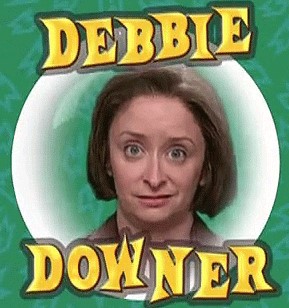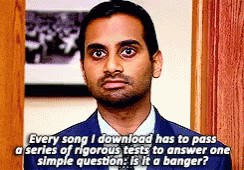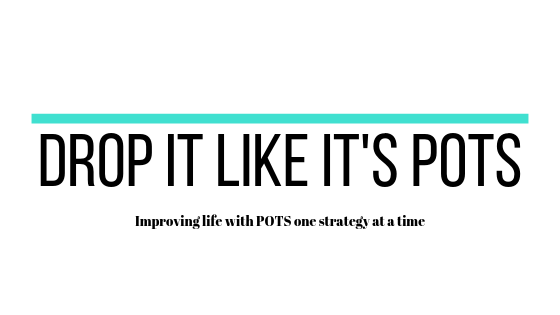It is natural for our bodies to release stress hormones when we are exposed to stressful stimuli. Unfortunately, our bodies cannot distinguish between real stimuli and artificial stimuli from media. An overabundance of stress hormones can exacerbate many diseases, in particular hyperadrenergic conditions and central sensitization conditions (certain forms of POTS, ME, and fibromyalgia). We can unknowingly worsen these conditions simply from exposing ourselves to certain types of media.
News

The bomb dot com for news is called The Skimm. It is sent via a daily email and does a good job of keeping you informed in a well-rounded way while leaving out the tragic and crime-related stories. Also, whoever writes The Skimm is hilarious.
I am fascinated by politics, so I also scope out Reuters and Politico. I recently switched to those from CNN, which is notorious for having tragic/garbage headlines and being biased. I also enjoy The Flip Side for politics. Most days, it sends an email about a particular recent political event, compiling quotes from liberal sources and conservative sources.
Update- The way I stay in the loop without overdoing it nowadays is the Tangle newsletter or podcast. It’s awesome and I can’t recommend it enough. It is written by an independent journalist, Isaac Saul. Tangle recaps a topic and then covers views from the right, from the left, and then includes Isaac’s take. It also includes some other things like quick hits to stay up-to-date on current news.
Television
The adrenaline being released from television can be more insidious than you would think. I recently watched the documentary The Dawn Wall about rock climbers climbing the Dawn Wall rock face at Yosemite. I felt normal and relaxed, but when I looked down I realized my hands were soaked with sweat. Yikes! I did not sense the effect it was having on me, and yet it was having a major physiological effect. By the way, I don’t think I’ve ever felt like more of a wimp than in that moment. Here’s these guys who are nonchalantly sleeping in tents dangling from a cliff, meanwhile I got sweaty hands from simply watching it.
When my husband and I watch TV, we pick something light and funny. I would recommend shows like: Parks and Recreation, The Office, New Girl, Schitt’s Creek, etc. (all of these are on Netflix).

We also like Jeopardy. It is light and does an excellent job of stimulating the brain in a positive way. I have noticed myself getting better at recalling and making connections to figure out the answers. This type of brain stimulation improves brain fog.
Be careful with medical shows, especially ones about medical mysteries or diagnosis. Watching certain medical shows can either make us hyperfocus on our own issues, or it can frustrate us because we don’t have that miracle cure portrayed on the show. There are some exceptions, of course. Here is an example- Royals Pains was fine, but House M.D. is a no-no for me. Each person will be different.
Books
Books can create suspense as well, so just be aware of how they affect you. I dig nonfiction books and biographies. Those are pretty safe bets. There are plenty of lighter fiction novels as well.
As a random side note, I recently read Message in a Bottle by Nicholas Sparks. Mr. Sparks, how dare you.
Music
I don’t have any scientific basis for this. I’m hypothesizing that as athletes get “pumped up” from music before competition, there is the chance that music encourages the release of adrenaline.
My music taste is basically Tom Haverford’s from Parks and Rec: “bangers” and 90’s R&B. I listen to music in short, random spurts and that has been fine. In fact, it can be positively energizing at times. If I played music often, I would imagine that it could become problematic.

Online Support Groups
Online support groups have many positives. You can connect with people which can be especially helpful if you are housebound. They are also helpful if you have a question.
There’s also a flip side to this. There is the potential of becoming inundated with information and discussion about illness. That is not healthy for anyone. I recommend not having them on a social media feed, but rather going to them if and when you choose to do so.
Google deep-diving
It is tempting to want to research the crap out of your illness and solve your dilemma. That is natural and sometimes it can even be fruitful. However, it can also make you become far too focused on your disease. Just check in with yourself when you engage in research to make sure it’s truly doing you a benefit. Also, keep in mind that there is a lot of absolutely asinine information out there.
Have you noticed media impacting your health? How so?
Side Note- Coronavirus
Here are a few resources pertaining to the Coronavirus:
- To learn more about the Coronavirus in general and the recommendations you may visit the CDC’s website.
- My neurologist, Dr. Svetlana Blitshteyn, wrote an article on the Coronavirus and Dysautonomia.
- Dysautonomia International Coronavirus Page
- This article from the ME Association in the UK discusses ME/CFS and COVID-19.
- The MEAction Network has a lot of resources on their page dedicated to the Coronavirus
- Most state-level governments are also issuing their own recommendations. Be on the lookout through local news outlets.
Disclaimer: I am not a medical professional. Statements on this site are not meant to be taken as medical advice. These statements reflect my personal experiences having mild-ish post-viral POTS and ME. Due to the wide spectrum of these diseases, comorbidities, and everyone being different, your experiences may be very different than mine.
Note: If you post a comment, this site does NOT have a feature to notify you of responses to your comment. I have not found a good solution for that yet. However, I usually respond to every comment in a timely manner, so be sure to check back.

1 Comment
So many great recommendations! This is a topic I’ve just been aware of myself. Whenever I have a flare of my Hashimoto’s symptoms I’m always looking for the cause so I can avoid it in the future. I’m learning which foods are triggers, and recently discovered barometric pressure and over exercising are triggers. But last week I couldn’t figure out what triggered the flare up until I realized it was stress. Even though I felt perfectly calm amid the pandemic I realized that I had enough concerns and worries that it might be the trigger. Yep, stress is a major trigger for my symptoms. So I stopped watching news and instead just used local news and CDC websites. I also practice my deep breathing more often and be sure to laugh. Laughter is a huge stress reducer for me. And your post had me laughing out loud! Thanks for the humor you inject into often times serious topics. You’re the bomb dot com! 😆😉